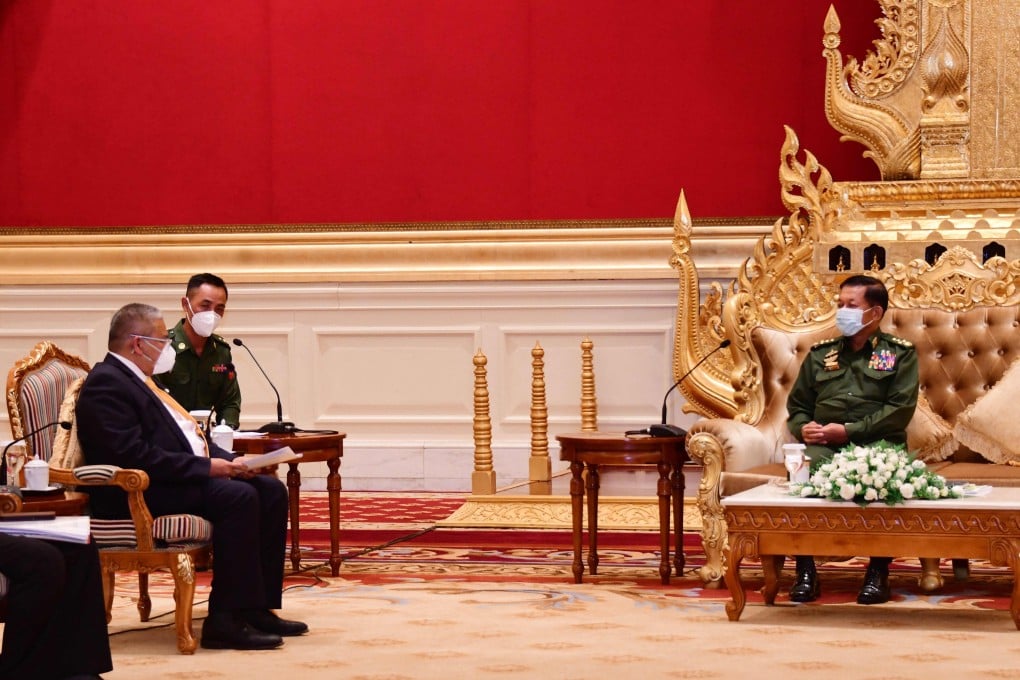Asean appoints Brunei diplomat Erywan Yusof as envoy to Myanmar
- Move seen as a compromise by the 10 nation bloc of Southeast Asian countries, which has been beset with questions about unity
- Reports had claimed Indonesia wanted its former foreign affairs minister Hassan Wirajuda in the role, while the Myanmar junta favoured former Thai foreign minister Virasak Futrakul

The decision to appoint Erywan Yusof, Brunei’s second minister for foreign affairs, as a special envoy was published in a joint communique of the bloc on Wednesday, two days after its 10 foreign ministers, including a representative of the Myanmar junta, held virtual talks among themselves as part of a weeklong series of meetings.
On the Myanmar crisis, the default position of the UN, as well as major powers including the US and China, is that Asean should use its entrenched influence with the junta to de-escalate the country’s post-coup violence.
But according to multiple media reports, the bloc’s efforts have been stymied by deep division over who to appoint as the special envoy.

02:17
Myanmar military coup hampers fight against country’s biggest wave of Covid-19
The appointment of an Asean special envoy is part of a five-point consensus that Asean struck with junta leader Min Aung Hlaing in April, as part of efforts to de-escalate violence in the country after the ousting of the democratically elected National League for Democracy (NLD).